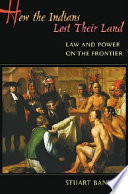 | Leonard Trelawny Hobhouse - 1922 - 280 lapas
...yet every man has a property in his own person : this nobody has any right to but himself. The labour of his body, and the work of his hands, we may say, are properly his. Whatsoever then he removes out of the state that nature hath provided, and left it in, he hath mixed... | |
 | James Pendleton Lichtenberger - 1923 - 504 lapas
...state." 20 "Yet every man has a 'property' in his own 'person.' This nobody has any right to but himself. The 'labor' of his body and the 'work' of his hands, we may say are properly his. Whatsoever, then, he removes out of the state that Nature hath provided and left it in, he hath mixed... | |
 | Ignaz Emrich - 1927 - 120 lapas
...wurden, kann nach Lockes Ansicht die Aneignung nur durch die Arbeit geschehen; denn: "The labour of bis body and the work of his hands, we may say, are properly his" 1. Im Privateigentum kann sich also nur ein solcher Gegenstand befinden, auf den von einem Menschen... | |
 | John Locke - 1928 - 436 lapas
...all men, yet every man has a property in his own person: this nobody has any right to but himself. The labor of his body and the work of his hands, we may say, are properly his. Whatsoever then he re. moves out of the state that nature has provided and left it in, he hath mixed... | |
 | William Fletcher Russell, Thomas Henry Briggs - 1941 - 438 lapas
...every man has a "property" in his own "person." This nobody has any right to but himself. The "labour" of his body and the "work" of his hands, we may say, are properly his. Whatsoever, then, he removes out of the state that Nature hath provided and left it in, he hath mixed... | |
 | Charles Merlin Umpenhour - 2005 - 568 lapas
..."Every man has a Property of his own Person. This no Body has any right to but himself. The Labour of his Body, and the Work of his Hands, we may say, are properly his".. ."The great and chief end therefore, of Men uniting into Commonwealths, and putting themselves under... | |
 | Oliver O'Donovan - 2008 - 347 lapas
...yet every Man has a Property in his own Person. This no Body has any Right to but himself. The Labour of his Body, and the Work of his Hands, we may say, are properly his. Whatsoever then he removes out of the State that Nature hath provided, and left it in, he hath mixed... | |
 | Alessandro Roncaglia - 2006 - 596 lapas
...every man has a 'property' in his own 'person'. This nobody has any right to but himself. The 'labour' of his body and the 'work' of his hands, we may say, are properly his. Whatsoever, then, he removes out of the state that Nature hath provided and left it in, he hath mixed... | |
 | Stuart Banner - 2005 - 366 lapas
...Creatures be common to all Men, yet every Man has a Property in his own Person" Locke asserted. "The Labour of his Body, and the Work of his Hands, we may say, are properly his." From that premise, Locke concluded that "whatsoever then he removes out of the State that Nature hath... | |
 | Michael McKeon - 2005 - 1864 lapas
...and "owner," propriety and property: "[E]very Man has a Property in his own Person. . . . The Labour of his Body, and the Work of his Hands, we may say, are properly his." "A mans Labour also," Hobbes wrote, "is a commodity exchangeable for benefit, as well as any other... | |
| |